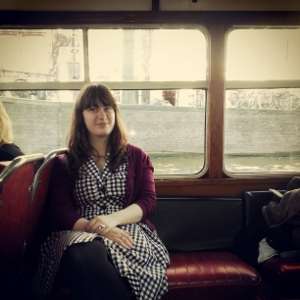One of the strange things about classical music is that we often hear pieces played without their original context. Ballet music is often performed as simply orchestral music, and many composers have made suites out of ballet or film music in order to make this even easier. However, sometimes when we hear the piece in its original form, with its original context, things fall into place that could not have done so otherwise.
Despite being a big Prokofiev fan, I never loved the Alexander Nevsky cantata that much. It’s an exciting piece, but I never saw it as more than that. Until I heard the BBC Symphony Orchestra play it live with a screening of Eisenstein’s Alexander Nevsky, which completely changed my opinion on the piece.
Filmed in 1938, Alexander Nevsky was Sergei Eisenstein’s first sound film. Eistenstein and Prokofiev worked closely together during the creation of the film, with Prokofiev writing music specifically for scenes shot by Eistenstein, but Eistenstein also tailoring his shots to Prokofiev’s music. The result is dynamic and flows really well; there is not a scene where the music seems out of place, and the contrast with the silent or quiet scenes is always done with great effect.
Alexander Nevsky is a Russian medieval folk hero and in him Eistenstein found a perfect subject for a film. In search for both official political approval and popular success, the heroic figure of Alexander Nevsky struck a chord with all involved. In the film, he is a stately and attractive man, with not only great insight on the battlefield but a true passion for Russia. The lyrics are nationalistic and so are Alexander’s speeches, but given the situation in 1938 one can imagine how this would have been very impressive at the time. Even more so during the re-release of the film in 1941! Nevsky battles against the German Teutonic Knights and defeats them with the help not only of soldiers but also of townsfolk and peasants. The message is abundantly clear: if anyone tries to attack Russia, we will defeat them. And indeed, this is echoed in Nevsky’s speech where he says that the next time someone invades Russia they will be defeated, he will call all to arms and those who do not answer will be punished, if not by him then by his sons (this speech was followed by a creepy smile that had the concert hall in stitches).
Timing is absolutely essential when an orchestra performs a film score live. At the moment the actors begin to talk the orchestra has to be silent or play at a much lower volume. On top of this, as the music was written specifically for the scenes, the sounds have to exactly correspond to the images. Martyn Brabbins was precise in his timing and led the BBC Symphony Orchestra with care and enthusiasm. The percussion and brass sections played a big role in the piece, and did so skilfully.
The BBC Symphony Chorus were absolutely fantastic. Their performance of “Arise, people of Russia” was spirited and convincing, and definitely the highlight of the performance. Coupled with the visually alluring images of Eistenstein’s film, it certainly transported me into a different world. Mezzo-soprano Catherine Wyn-Rogers’ appearance in “The Field of the Dead” was a little bit less memorable, even though she was solid and technically sound. Perhaps her interpretation lacked some of the emotional depth that one would expect from a song about a girl walking around a field with the victims of a battle. It was exactly this kind of emotional depth that the chorus did often deliver, both in the more energetic numbers and the more serene. An interesting and clearly deliberate contrast in the chorus was made by the hymn the Teutonic Knights sang. It was a Latin chant (“Peregrinus expectavi, pedes meos in cymbalis”) and its delivery by the chorus was calm and assured, though lacking any emotional commitment.


